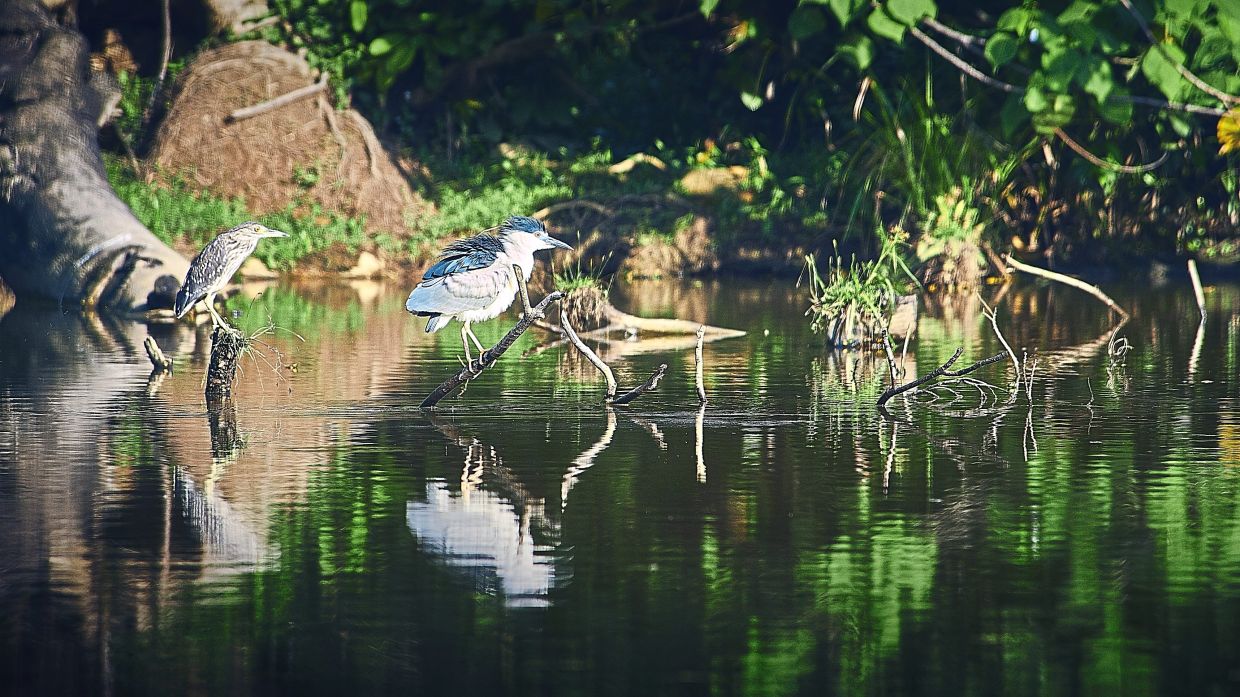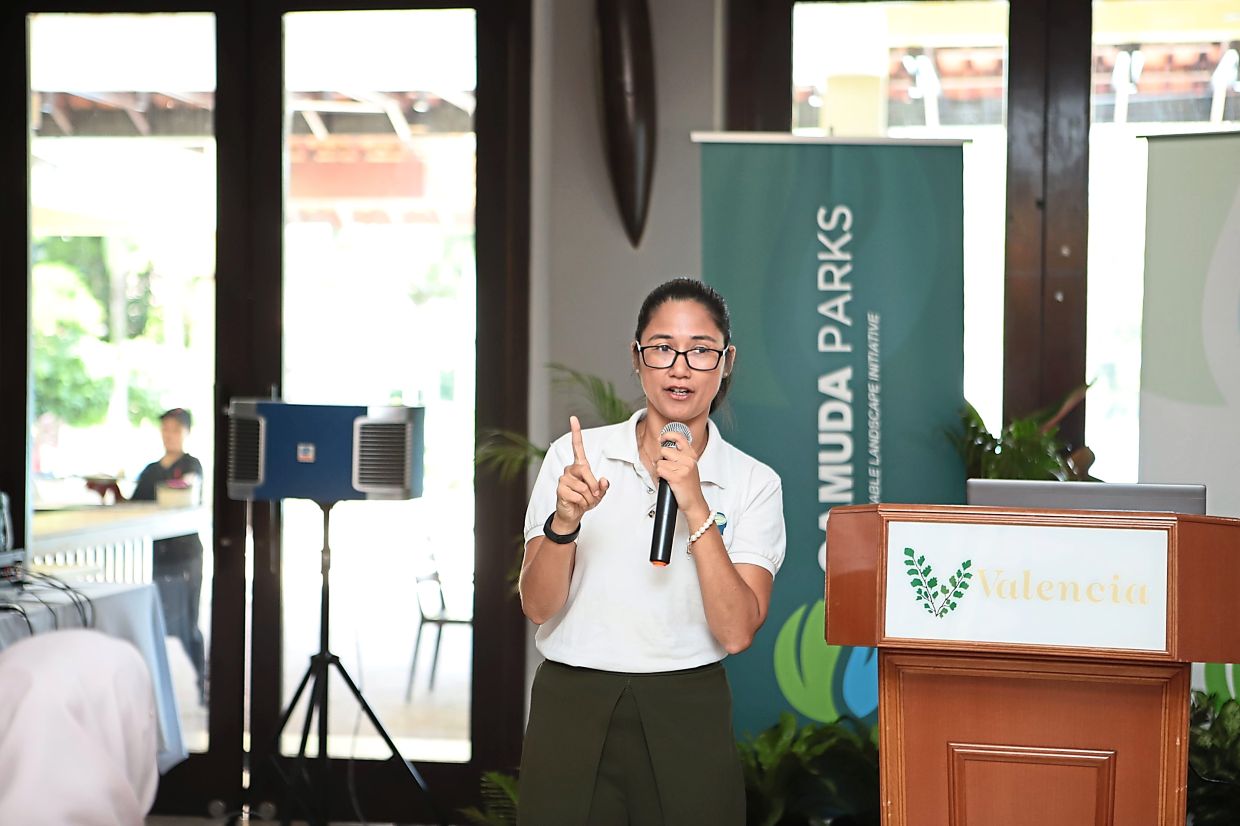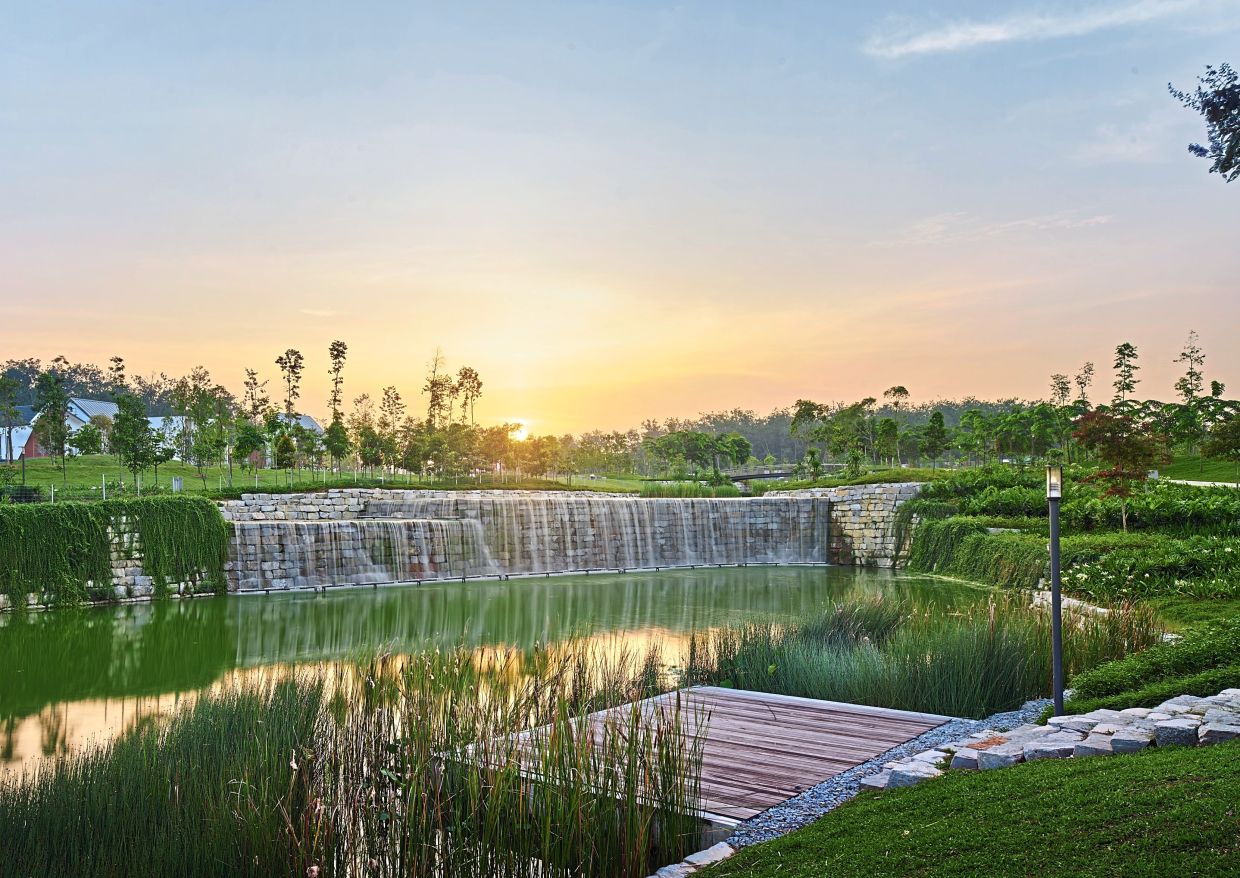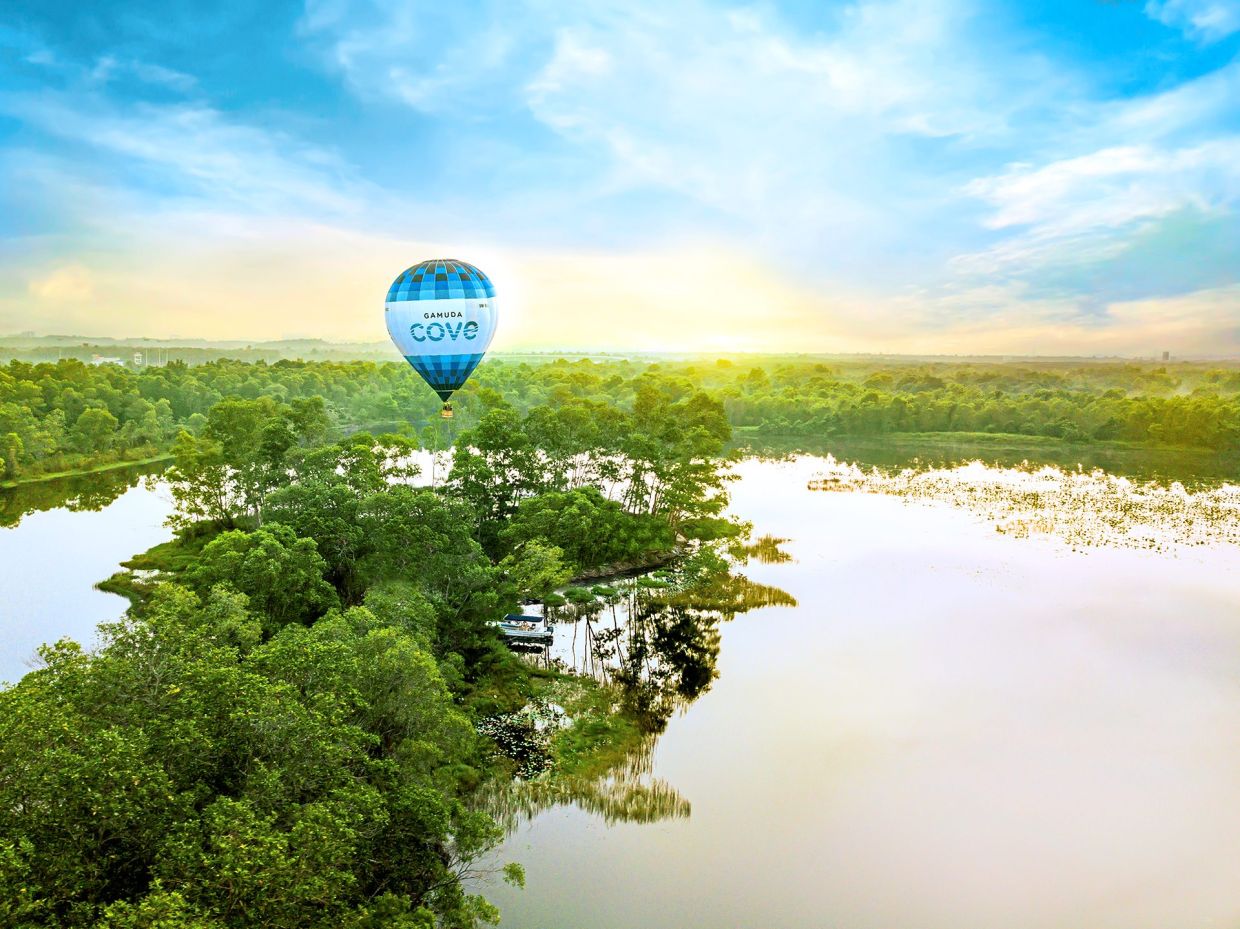
There are a good variety of animals taking refuge in Valencia today.
The Covid-19 pandemic is a reminder of the link between our wellbeing and nature, and the importance of ecological harmony in our development policies.
The pandemic, which cuts a deadly swathe through more than 180 countries, is a human tragedy.
The number of cases globally has surged past the 4.2mil mark with more than 290,000 lives lost to the deadly virus.
With a third of the planet’s population now under some form of lockdown, many are under the order to stay home and avoid social gatherings in the bid to stem the pandemic’s spread.
Although these lockdowns have led to a profound impact on the global economy, there has been a silver lining.

Ecologist Dr Christine Fletcher shares her experience on wildlife ecology and forestry as Gamuda Parks’ external advisor.
Industries grinding to a halt, thousands of airplanes grounded, and far fewer vehicles plying the roads have spelt improvements in air quality and pollution levels.
Drops in nitrogen dioxide (NO2) emissions from all these activities of 30% to 60% are being recorded in many European cities including Barcelona, Madrid, Milan, Paris and Rome according to the European Environmental Agency.
In Malaysia, the United Nations Development Programme reports that the percentage of stations, which recorded “good” air quality readings increased two-fold from 28% to 57% after the Movement Control Order (MCO) was enforced.
There have also been reports of wildlife making a comeback.
Just a few weeks ago Thailand reported the largest number of nests of rare leatherback sea turtles in two decades on beaches empty of tourists because of the Covid-19 pandemic.
In North Wales, UK, a herd of wild goats has reportedly descended on a popular coastal tourist town.
And in Barcelona wild boars were spotted strolling through the deserted streets of the usually bustling downtown.
Ecologist Dr Christine Dawn Fletcher, says that fewer vehicles have translated to better air and water quality for urban wildlife to flourish.
“Perhaps also now without the hustle and bustle of humans busy getting through life, we are finally seeing and noticing the urban wildlife that has always been there, living among us, ” she says.
A wake-up call
Fletcher, who has more than 15 years of experience conducting research in wildlife ecology and forestry, says Covid-19 is a wake-up call on the consequences of taking our responsibility towards nature poorly.
“Creating and leaving space for man and animals to co-exist is a delicate yet often overlooked challenge, ” explains Fletcher.
“The overall goal is to inflict minimal disturbance to the ecological balance.

Gamuda Land townships are planned and built with the community and environment in mind.
“Other helpful considerations to promote ecological integrity include preserving the best environmental features of the area, allocating sufficient areas to connect to adjacent natural features and a migration plan to allow the free movement of existing wildlife to take refuge, ” she adds.
These considerations are especially pertinent in the property development sphere.
For property developer Gamuda Land, which works closely with ecologists and environmental specialists like Fletcher, prioritising ecological harmony in township planning has been part of its DNA for more than two decades.
At the heart of its town-making principles is the belief that sustainable integrated townships should be planned and built with the community and environment in mind – guided by the ethos of listening to what the land has to say to create a more conducive environment, better than it was before development.
Over the last two decades, Gamuda Land has planted more than 280,000 trees in its property developments – sequestering 36,140 tonnes of carbon absorbed.
The parks and green spaces in its townships feature lakes, ponds, wetlands and streams encompassing 140ha.
The developer’s two-decade journey in sustainable development reached a milestone in 2018 when it established Gamuda Parks.
Its principal objective is to safeguard the living environment through a Gamuda Parks Biodiversity Policy, a blueprint for the designing, developing and maintaining of its townships’ environment.

Paya Indah Discovery Wetlands is connected directly to Gamuda Cove.
As Gamuda Parks’ external advisor, Fletcher acknowledges that finding a balanced relationship is not an easy task, especially when dealing with nature.
“We can’t direct animals and plants to do as we want or go where we want, hence it depends on us to work around nature, to recreate the harmony and give nature time to reach an equilibrium, ” she says, adding that studies have shown that a logged over forest or a cleared land takes up 100 years to regenerate and recover its biodiversity and function.
She says that having a natural, intact area close by will increase this regeneration, by providing the genetic pool and population to recolonise the open area.
“Through human intervention such as improving soils, conserving and planting trees, and creating various landscape elements, this process can be fast-tracked, as what was done in Gamuda Land’s development in Sungai Buloh, Valencia, ” she adds.
Developed 15 years ago, the mature trees at Valencia were planted while retaining some of the land’s original flora.
As a result, there are a good variety of animals taking refuge today, acting as dispersers and pollinators for other plants to establish.
Community to have enhanced quality of life
Conscious efforts have been put into creating spaces that encourage people to explore and enjoy the outdoors with family and friends.
Gamuda Parks also conducts environmental education workshops to share its experience in setting up gardens, maintain them and also inculcate this habit among the young ones.
It also initiated the GParks Ranger programme to promote green awareness among young children.
Gamuda Parks has recruited experts from different disciplines, including specialists from the Forest Research Institute Malaysia and Wetlands International Malaysia, to conduct biodiversity audits.
These audits were carried out at some of Gamuda Land’s townships including Gamuda Cove, Gamuda Gardens, Valencia, Jade Hills and Horizon Hills. There are also plans to audit its overseas townships.
“Annual biodiversity assessments are very useful to measure the effectiveness of the township’s efforts in creating this harmonious relationship between the community and nature, ” says Fletcher.
“We can determine if the ‘desirable’ plants and animals are taking refuge and monitor over-population or occurrence of invasive alien species.”
In fact, Fletcher admits to being struck by Gamuda Parks’ ingenuity and commitment to be socially and environmentally responsible.
Ultimately she stresses that the community too have a role to play.
“Having residents to care, appreciate and share their home with these animals is the key to nurturing a harmonious relationship.
“This means not feeling indifferent about spotting birds and their nests along the house walls, or even civets taking a bite from their fruit trees.
“An important point we must always acknowledge is that firstly, this was their home first before we made it ours.
“Secondly, animals will not deliberately cause us harm or discomfort – in fact they would shy away from humans for fear of their own safety, ” adds Fletcher.


